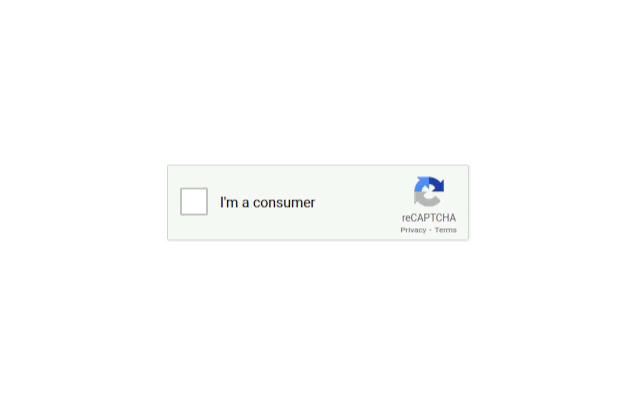From housing, to media, to printers, to everything else. Get ready to own nothing; pay rent on everything.
Disclaimer: I am the author
One of the main factors contributing to this problem is how customers simply give up their rights for convenience. Pro-customer options don’t disappear. They die a slow painful death.
Take the example of DRM in books. All the easy options like from Amazon are DRM encumbered. But the DRM-free options are still available if you are willing to search a bit. They don’t cost much extra either. But people don’t care. And direct sellers providing DRM-free books wither away in neglect. Similar examples are still around for reparable devices, DRM-free multimedia, etc.
Consumers rights are not a given. Like any rights, those are the ones you have to defend. You have to put at least a little bit of effort to protect it. When I suggested this recently, I was accused of ‘victim-blaming’. What escape is there when the victims are not ready to fight back?
What you say is true and I can understand it is frustrating. But I really don’t know how to convince people. Convenience is king and you need to have strong political opinions to abstain. I am a nerd, but still I often need double the time to find the “alternative” way of owning things.
I recently wanted to get the Harry Potter audio books for listening on my phone. I basically had two “official” options:
- Buying all E-books as mp3 download for 235€
- Amazon Audible for 10€ per Month
You can clearly see that in reality, the industry gives you only one option - audible. For 235€ you can have 2 years of e-book subscriptions.
Maybe you would say “hey, 235€ may seem expensive but in exchange you will get to own the stuff you pay for!”. The thing is: you can get the whole audiobook collection on mp3-CD for just 70€ on Amazon?
In the end I bough an external CD-ROM drive and bought the mp3-CD box used for 40€.
It’s not about that stupid Audiobook or whether the price is justified. The point I want to make is that the industry makes is so hard for individuals to own things, that I almost see this as a lost battle. The way I chose, took almost 2 weeks, days of research, a frustrated lemmy post, two online orders and 2 hours time to copy the mp3s.
And the thing is, it’s the same for everything else - you want to buy a vacuum cleaner? Oh better look if it comes with special cleaner bags for 30€ per bag. Let’s not talk about printers.
Every little item needs so much research, only for the aspects of planned obsolescence and true ownership. We do not even talk about social or environmental aspects…
How the fuck should I expect others to spend so much time on energy on consumption things? Honestly, sometimes I am a bit envious of the people that just do not care. But only sometimes.
Sorry, that somehow developed into a rant
A VPN subscription is 5€ / month, and qbittorrent is free.
I’m not sure if that is a sustainable model for the whole society. Pirating as a solution for everything feels like giving up to me. Also I can’t pirate my vacuum cleaner.
I feel like the “pirate everything” mindset focuses on shitty corporations but ignores that paying for media also helps the creators pay their rent.
I think there’s a big difference between the things you pirate. If you’re pirating some very old books written by people that died a century ago, I don’t think it’s all that bad. If you’re pirating text books made by companies that will intentionally jumble the chapters and paragraphs around just so you can’t buy them second hand, piracy should be encouraged. If you’re pirating from a small independent author, I think piracy is only acceptable in very few situations.
I’ve pirated copies or books I bought because I couldn’t strip the DRM. I think that’s completely fair. Sure, I helped spread the torrent to a few other people in the process, but I just wanted to open the thing I bought on Linux without running a bunch of shady tools.
I can agree with this. Or pirating old games that aren’t available through GOG, Steam, etc. Like if I want to play Battletoads, I don’t have many options…
Oh no! I’ll let all my patreon subsciptions know that me ensuring I have permanent backups of their content is literally ruining their lives!
Also I can’t pirate my vacuum cleaner.
Yet
Not yet
3d printers are getting better every year!
I mostly agree with your comment. And you are absolutely not ‘victim-blaming’. I think some might mistake your stance with a ‘vote with your wallet’ sentiment, but I interpret your comment about ‘fighting back’ as more than that.
Obviously, it is better to seek out the better options as a consumer, but that is not enough. People are not stupid for not seeking out alternatives, when the game is rigged against them in the first place. Fighting back also means trying to unrig the game. How one is supposed to achieve that is a question that I don’t have a satisfying answer for. I for myself, started by educating myself, by becoming more vocal about the defects of the status quo, and by advocating for change. It’s not a lot, but it can reach into your circle of friends. I attempted to reach a bit further with this blog post, even though it might just reach people that don’t need any convincing.
In the spirit of trying to make a difference, what are some of the DRM-free options? Let’s point people directly to better alternatives :)
I know of libro.fm for audiobooks.
A lot of this boils down to the tragedy of the commons - what you said about book DRM is a textbook example of that.
And usually the tragedy of the commons needs to be solved through agreement or arbitration. But agreement across a huge number of people is almost impossible; and arbitration would likely need to rely on governments - but governments exist primarily to defend the interest of the power-holders, not of their citizens.
I saw your comment 3 months late 😄 In the blog post I actually mention the tragedy of the commons. The problem with the theory is that it is only applicable in fixed empirical settings. For this reason, I think it is quite dangerous to apply this theory generally. It is actually a key ingredient in neoliberal economics, where it is argued that privatization of commons is necessary, because they are tragic. I had to unlearn this notion myself. I recommend the book ‘Governing the Commons’ by Elinor Ostrom on the topic, it’s a collection of case studies which shows that commons are only tragic under certain preconditions.
Does this mean that I need to wait until September to reply? /jk
I believe that the problem with the neolibs in this case is not the descriptive model (tragedy of the commons) that they’re using to predict a potential issue; it’s instead the “magical” solution that they prescribe for that potential issue, that “happens” to align with their economical ideology, while avoiding to address that:
- in plenty cases privatisation worsens the erosion of the common resource, due to the introduction of competition;
- the model applies specially well to businesses, that behave more like the mythical “rational agent” than individuals do;
- what you need to solve the issue is simply “agreement”. Going from “agreement” to “privatise it!!!1one” is an insane jump of logic from their part.
And while all models break if you look too hard at them, I don’t think that it does in this case - it explains well why individuals are buying DRM-stained e-books, even if this ultimately hurts them as a collective, by reducing the availability of DRM-free books.
(And it isn’t like you can privatise it, as the neolibs would eagerly propose; it is a private market already.)
I’m reading the book that you recommended (thanks for the rec, by the way!). Under a quick glance, it seems to propose self-organisation as a way to solve issues concerning common pool resources; it might work in plenty cases but certainly not here, as there’s no way to self-organise people who buy e-books.
And frankly, I don’t know a solution either. Perhaps piracy might play an important and positive role? It increases the desirability of DRM-free books (you can’t share the DRM-stained ones), and puts a check on the amount of obnoxiousness and rug-pulling that corporations can submit you to.
Sorry, I missed that this thread started on the topic of ebooks. To be honest, I don’t fully understand the connection you are making to the tragedy of the commons when it comes to DRM. I think I understand what you mean, if you are arguing on top of DRM, but DRM is itself already a tool of enclosure. So the problem is not really consumer choice, but rather that DRM is allowed in its current form. But I admit that this is a different discussion, I guess in the end we are talking about the same and I agree with you. I think the self organizing part here would be for authors to publish independently, and for people to support independent publishing. But as you implied, that market is already captured to a point where people don’t even know about independent publishers/markets. I wouldn’t look at that as a tragedy of the commons, where people “selfishly” choose DRM and degrade the underlying resource, rather they are simply consumers of an almost fully enclosed resource.
Glad you find it interesting enough to start reading. The book doesn’t necessarily “propose self organizing”, although that may be a conclusion one can draw. Rather it showcases different case studies where common pool resources have degraded, and others where they have flourished, and tries to compare the different situations through a few parameters. What I took from it is, that it is pretty safe to say that neither privatization, nor central planning are good “solutions” when it comes to common pool resources, also that it seems important to have some form of rule monitoring and enforcement where actors directly affected by rule-breaking are part of the monitoring. But I should probably read through my highlights again some time, to freshen up my memory :)
Really appreciated your insight.
Think on the available e-books as a common pool, from the point of view of the people buying them: that pool is in perfect condition if all books there are DRM-free, or ruined if all books are infested with DRM.
When someone buys a book with DRM, they’re degrading that pool, as they’re telling sellers “we buy books with DRM just fine”. And yet people keep doing it, because:
- They had an easier time finding the copy with DRM than a DRM-free one.
- The copy with DRM might be cheaper.
- The copy with DRM is bought through services that they’re already used to, and registering to another service is a bother.
- If copy with DRM stops working, that might be fine, if the buyer only needed the book in the short term.
- Sharing is not a concern if the person isn’t willing to share on first place.
- They might not even know what’s the deal, so they don’t perceive the malus of DRM-infested books.
So in a lot of situations, buyers beeline towards the copy with DRM, as it’s individually more convenient, even if ruining the pool for everyone in the process. That’s why I said that it’s a tragedy of the commons.
As you correctly highlighted that model relies on the idea that the buyer is selfish; as in, they won’t care about the overall impact of their actions on the others, only on themself. That is a simplification and needs to be taken with a grain of salt, however note that people are more prone to act selfishly if being selfless takes too much effort out of them. And those businesses selling you DRM-infested copies know it - that’s why they enclose you, because leaving that enclosure to support DRM-free publishers takes effort.
I guess in the end we are talking about the same
I also think so. I’m mostly trying to dig further into the subject.
So the problem is not really consumer choice, but rather that DRM is allowed in its current form. But I admit that this is a different discussion
Even being a different discussion, I think that one leads to another.
Legislating against DRM might be an option, but easier said than done - governments are specially unruly, and they’d rather support corporations than populations.
Another option, as weird as it might sound, might be to promote that “if buying is not owning, pirating is not stealing” discourse. It tips the scale from the business’ PoV: if people would rather pirate than buy books with DRM, might as well offer them DRM-free to increase sales.
Sounds like if you solved that last problem all the others would sort themselves out in due course
All the easy options like from Amazon are DRM encumbered. But the DRM-free options are still available if you are willing to search a bit.
Are they? Where (other than piracy)? A lot of books seems to be sold exclusively with DRM from what I can tell. Some are even exclusive to Amazon.
I think there’s a bit of a defect in the argument about renting. Renting can be cheaper than buying all-in and more convenient if it’s run without profit, or low profit. When the renteers are few and there’s no established mechanism to prevent arbitrary increases in rent prices you do get into the situation where we are. Renting can become expensive and extortionate. But this is why I think people went for renting. It was cheaper and more convenient than buying. The thing is though, the lack of processes preventing renting to get expensive also exist in buying. When there’s few for-profit suppliers, buying can become extortionate too. The free market has gaping holes when it comes to this and it relies on the government to plug them. But the profitable players in the market don’t want those holes plugged so they take over the government with the profits. So it seems to me that there’s no reliable solution found that doesn’t involve collective action by a significant part of the citizens whether the dominant model is renting or buying. I’m fairly certain trade unions are an important part of a solution, since they reduce the profit collected by the decision-makers in corporations, leaving less for buying governments, and gaining the ability to buy governments on the majority’s behalf. But I don’t know if it’s enough.
Wish more people would disclose they are posting their own articles
Props to you
I absolutely hate it for medias like music or movies. Back in the time, you had your CD and DVD/BD in physical format. Now there’s music you about cannot buy to own. Same for old movies, you cannot find them physically, only rent them on youtube for instance.







